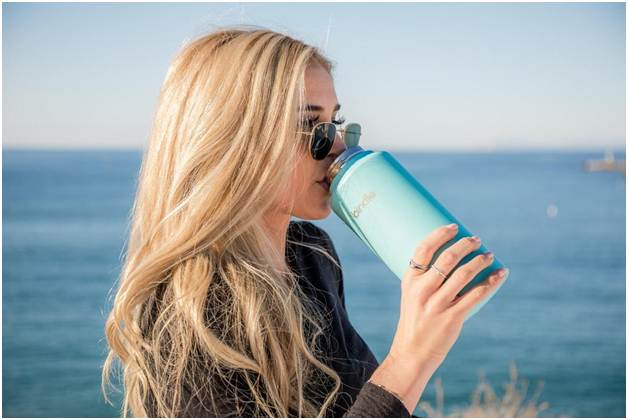When you hear the word “tonic water”, most of us start questioning its nutritional advantage? If it’s just an additive you so gladly enjoy with your gin drink, or there’s something more to it?
Let me tell you, there’s definitely A LOT more to tonic water. While it’s beneficial in some cases, it can harm you in others.
Before we jump to the benefits and health problems associated with tonic water, let’s discuss its nutritional facts to understand whether you really want to go for it or not.
Nutritional facts of Tonic Water
According to the USDA, 12 ounces (366 g) of tonic water constitutes the following nutritional value –
- Total calories – 114 g
- Sodium – 40 g
- Carbohydrates – 30 g
- Total fat – 0 g
- Proteins – 0 g
- Sugars – 30 g
- Fiber – 0 g
If you’ve tasted tonic water before, you know that it has a bitter taste. This bitter taste comes from Quinine. Quinine is a natural substance that we get from the barks of the Peruvian cinchona tree.
To get rid of the bitter taste, some brands add natural or artificial flavors to cancel the bitterness.
As mentioned, the total amount of calories in 12 ounces of tonic water is very high. Yet, it isn’t considered as healthy as tonic water or mineral water.
The reason is that the brands include some form of sugar in their tonic water, like common sugar, cane sugar, or high fructose syrup. When added with gin, the calorie count stretches near 200 calories.
The benefits of Tonic Water
Medicinal tonic water is still used to acquire many health benefits and treat certain health conditions.
- The Quinine present in Tonic Water acts as a great antimalarial agent.
The main purpose of tonic water in the old days was to deliver Quinine, an antimalarial drug.
So, the roots of tonic water go back to the time when it was used to gain medicinal purposes and to treat malaria, rather than just a liquid used to enhance the taste of your drinks.
Quinine present in the tonic water is useful to kill the schizont of malarial parasites. It is also effective in killing the protozoan parasites responsible for Plasmodium vivax and Plasmodium malaria.
Quinine is still used for medicinal purposes in order to treat malaria. Though, doctors prescribe it only when the malarial parasites don’t respond to the new drugs.
Either way… the next time you drink tonic water, you know you are walking a step away from malaria.
- Tonic water is believed to provide some relief from Restless Leg Syndrome.
The Quinine present in Tonic Water can help you get some relief from leg cramps and Restless Leg Syndrome. The only thing you need to remember is to be aware of the dosage.
High doses of Quinine can do more harm than benefit. The Food and Drug Administration suggests the same.
It is also advised by the FDA to discard the use of off-label quinine products for treating Restless Leg Syndrome and leg cramps.
According to some very few studies, tonic water helps you reduce leg cramps episodes. But there are no reports on the effect of tonic water on the severity or duration of such episodes.
So, before you drink bottles of tonic water hoping it can cure your deadly cramps, remember that excess of anything is bad and there’s a thing called “quinine toxicity” which can give you unwanted side-effects.
- It offers antipyretic properties
The antipyretic properties of quinine hold the capacity to prevent fever and also to treat fever. Quinine can result in dropping of high body temperature when used with other relevant drugs.
Not only that, but it also has anti-inflammatory properties.
- Provides relief from stress
Some people prefer drinking tonic water along with gin to get relief from stress and ease themselves a little.
Even if tonic water was used to gain quinine in the old days and was known for its medicinal purposes, right now it is considered a delightful addition that makes gulping down vodka down your throat easier and tastier.
Takeaway
Tonic water has its fair number of benefits. Just be careful with the dosages and you are good to go! Struggling with choosing the right brand? Strangelove tonic water is a never-miss!







